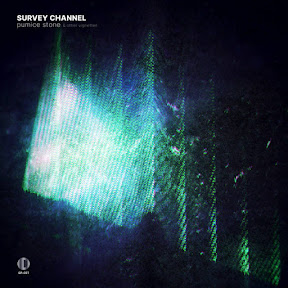What a wretched preamble for a band like The Soods to wade through. The attention was sought. Feels consensual. They seem like good people. Their process as a recording band looks archaic and unwieldy but I imagine it to be a lot of fun. Fourteen different people contribute to 'Ornaments Of Affection', not just as musicians but as singers and writers, too. Three produced. Two mixed. I marvel at this feat of collective sharing and production and the egalitarian division of tasks on the record. I imagine the joy of this social grouping would be present in a live setting with fourteen members crowding a stage, baton-passing instruments, calling out to a circle of friends in the crowd. But while there is an undoubted broader communal unity brought to bear on the thirteen songs presented here, it is the same diffuse and rotating of personnel and writers that undermines the album as a whole and makes it an egg for an invested and patient curate.
Hard to speculate on a discreet process, but I doubt that Jason Roy, as leader and shaper, for all his other evident talents, is a tyrant of unbending vision and I strongly suspect that fun, fraternity and égalité were much higher priorities than the rigid rule of a guiding aesthetic (and maybe that is a nobler cause). So, for every moment of melodic flight there are three of leaden thump. For every graceful couplet, there are too many weighed down by the alignment of lockstep meter and overly full rhyme (houses, blouses, you, true) or lines awkwardly attenuated. For every leaner and cleaner musical idea, there are ten baggy ones, bloated in their arrangements or veiled in the gauze of misapplied effects post production. All of which is a shame if the unity of an end product is the only measure of its worth. Personally, I generally do end up taking the best of an artist forward with me (often in the form of just one or two songs) rather than the median or aggregate of an album or career and the best here is pretty good. Opener 'Oh, Mersey Days' is a wistful song of minor moods and the kind of unapologetic classicism of The Las's and The Go Betweens that boasts a great nasal & head lead vocal from Shane Tripp (sadly underused later). There is more Anglophilia in the other stand-out 'There To Be Had', a song that is slightly over-engineered with risers & bridgers, somewhat anchored by its couplet meter and rather blighted by a mismanaged fadeout (a recurring problem...Pam's prescription: listen to Jonathan Richman to learn how to end a song) but just about outruns all these impediments with its bright and shiny ribbons of Paisley underground guitar and another Shane Tripp vocal, sounding like a low rent Wayne Coyne. Elsewhere, things are a little more competent and ordinary, licks and solos are evidence of the quality and craft of the players and their careful interaction, but the constant committee-like crisis of congress makes it hard to discern a Sood identity that isn't really much more than the sum of the psych rock/pop spectres (Echo & The Bunnymen, Energy Gown, Missing Monuments, Camper Van Beethoven from my notes) that passed quickly through my head during the thicket of songs and I never escaped the feeling The Soods are a live band compromised by the choices and processes of a studio,




